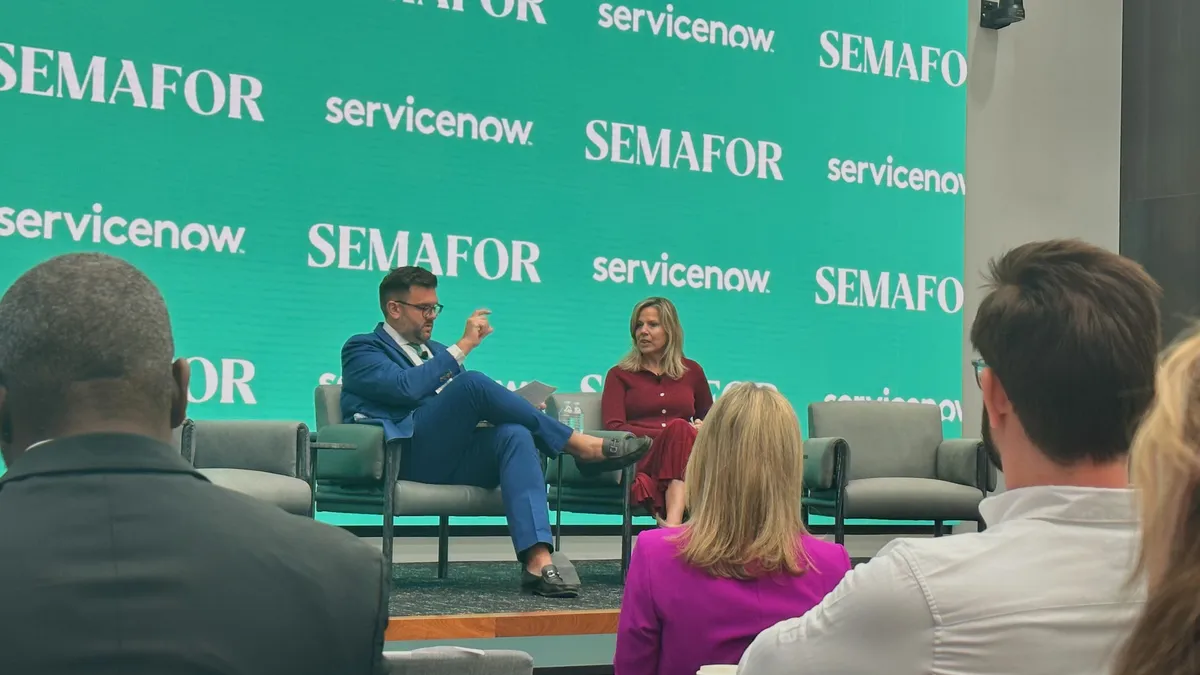WASHINGTON, D.C. — Upskilling was on the minds of many speakers at the Gallup World of Work event. Here are five quick takeaways from when business leaders in technology highlighted the importance of reskilling the global workforce.
1. The case study: A 10-year L&D track
David Tudehope, CEO of Australia-based Macquarie Telecom — a telecom, cloud, data center and cybersecurity company — outlined how entry-level workers at his company follow a specific 10-year-track. Title bumps and pay raises happen every six months, with “graduations” at two-year intervals, thanks to frequent external testing to make sure employees are up to snuff.
2. The burden of responsibility: Private vs. public
The U.S. Chamber of Commerce Foundation’s SVP of Policy and Programs Jason Tyszko and The Business Roundtable’s SVP of Corporate Initiatives Dane Linn shared a panel session answering a nuanced question: Is mass workforce upskilling the responsibility of individual employers or the federal government?
Tyszko said it’s a “both/and.” Linn agreed, having spoken at length about the Workforce Innovation and Opportunity Act, which is “designed to strengthen and improve our nation's public workforce system and help get Americans, including youth and those with significant barriers to employment, into high-quality jobs and careers and help employers hire and retain skilled workers,” according to the U.S. Department of Labor.
3. The wildcard: Highlighting L&D through film
ServiceNow CPO Jacqui Canney talked about her then-upcoming trip to the Tribeca Film Festival. Her company made a film profiling members of Rise Up, a program that accepts mothers looking to do a workplace returnship and workers without four-year degrees.
Gallup also screened a film highlighting Apex Technical School — and how one person’s journey in the trade school space greatly improved their life.
4. The war for talent: Gen Z front-and-center
Non-traditional pathways and funding for learning and development programs took center stage, but so did the question of Gen Z, and whether higher education has prepared today’s young adults for the workforce.
Handshake’s Chief Talent Engagement Officer Valerie Capers Workman was a Gen Z champion, encouraging employers to see this population beyond their shaky, strange, lockdown-era foray into the workforce. Gen Z doesn’t care about working remotely so much as they care about hybrid work and flexibility; instead, the promise of stability is most attractive, Capers Workman said.
5. The tech-era takeaway: Why soft skills matter
Perhaps the most poignant nugget about job preparedness and job upskilling came from the other person sitting beside Handshake’s chief talent engagement officer during her session: Chike Aguh, senior advisor of Harvard University’s Project on Workforce.
Soft skills are “soft, until you don’t have them,” Aguh said. “Then it’s hard.”
Threading the needle on previous comments about soft skills, Capers Workman said that Gen Z hasn’t necessarily been prepped with the proper critical thinking and strategy or “soft skills.”
Aguh said the process of developing soft skills is similar to getting good at sports. Aguh asked how many people in the room had been athletes when they were younger. After a show of hands, he said: “You can’t read a book on how to do a jump shot.”
Researchers continue to recommend employers shape their learning and development programs around AI upskilling. Earlier in the month, Info-Tech Research Group outlined three key steps to closing the knowledge gap: define AI competencies, assess the skills gap from there and address the skills gap with internal or external courses — as well on-the-job training.













